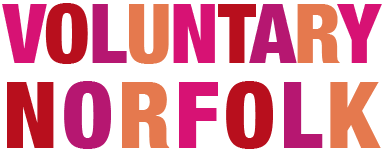Funding to Support Local Voluntary Organisations in Combatting Decline of Volunteers
An exciting collaborative project led by Norfolk and Waveney Integrated Care Board (ICB) and Voluntary Norfolk has received a £540,000 grant to support volunteering. This funding, part of the national Volunteering for Health programme, recognises the important role volunteering plays in improving community health and wellbeing.
Tackling the decline in volunteering
Over the last decade, the number of regular volunteers has decreased by more than 10%, which has strained many voluntary, community, and social enterprise (VCSE) organisations—especially smaller ones, which rely heavily on volunteer support. Lucy Hogg, Director of VCSE Support at Voluntary Norfolk, commented on the issue: “These organisations are struggling to deliver services, from mental health support to community outreach, at a time when there is increasing demand.
“The consequences of this are felt by communities and individuals across Norfolk. The shortfall directly impacts those who most depend on these services. The loss of volunteers not only reduces key services but also weakens the community ties that these roles help foster.
“At Voluntary Norfolk, we’re helping groups and organisations to adapt to the changing nature of volunteering. More flexible, ad hoc volunteering is becoming the norm, as volunteering roles seek to fit around people’s limited time and other responsibilities. This shift demands that we as an integrated health and care system work effectively together to share more innovative ways of involving more diverse communities in volunteering.”
Key objectives of the Volunteering for Health programme
The grant is part of the Volunteering for Health programme, which is a £10 million programme being delivered in partnership by NHS England, NHS Charities Together and CW+, the official charity of Chelsea and Westminster Hospital NHS Foundation Trust.
Volunteering for Health aims to maximise the benefits of volunteers as they play a valued part in delivering health and social care nationally and locally, whilst strengthening volunteering infrastructure.
The national Volunteer for Health programme is part of NHS England’s response to the NHS Volunteering Taskforce which brought together health charities, volunteers, clinicians, civil servants and policy makers. The Taskforce published its recommendations in June 2023, concluding that more can be done nationally and locally to maximise the benefits of volunteers and volunteering in the NHS.
This is one of 15 partnerships across the UK to successfully bid for funding. Partnerships are made up of VCSE organisations, NHS Trusts, integrated care boards (ICBs), local authorities (LAs) and NHS charities.
Local program partners include NHS Norfolk and Waveney ICB, Norfolk County Council, Voluntary Norfolk, Community Action Norfolk, Community Action Suffolk, Norfolk and Norwich University Hospital, and the University of East Anglia’s Institute of Volunteering Research.
How this funding will support Norfolk’s organisations
In Norfolk there are about 3,600 registered charities but the total number of VCSE organisations is thought to be closer to 10,000 with around 6,500 smaller informal groups and at least 200 social enterprises. Many of these will be making a difference in the health and social care sector, which this fund is focussed on.
In Norfolk the grant will:
- Support organisations who rely on volunteers, improve their access to people interested in volunteering
- Support organisations to tailor opportunities based on the changing ways people want to volunteer
- Making the case for investment in the VCSE, NHS and social care sector
Local VCSE organisations interested in this programme should contact NHS Norfolk and Waveney ICB’s Volunteering Programme Manager Jules Alderson, by email.
Why Volunteers Matter in Health and Social Care
Mark Burgis, Executive Director of Patients and Communities at NHS Norfolk and Waveney ICB, emphasised the importance of volunteers: “Volunteers make a significant difference in Norfolk and Waveney, enhancing patient and visitor experience in health settings and providing valuable services in the community. Volunteers can never replace professional staff but they can use their time to provide support, making a health or care experience that little bit less daunting or lonely.”
He added: “Giving your time does so much more than help other people, it can also give people a sense of connection, build confidence and improve health, wellbeing and employability. We know that people are looking for more flexible, accessible and inclusive ways to get involved and gift their time whilst reaping the personal benefits. Taking part in Volunteering for Health is a unique chance to work with local and national partners to find new approaches which meet the changing needs of our communities, ensuring the best experience for people who get involved and secure a sustainable future for volunteering.”
Duncan Burton, Chief Nursing Officer for England, said: “Volunteers, as partners with our skilled staff, make a significant contribution across NHS and care services and positively impact the lives of many people.
“There are currently more than 300 ways that people can volunteer for the NHS, ranging from running a hospital radio show to helping combat loneliness. This programme will further harness the power of volunteering for the benefit of patients, staff and communities.”
Visit Get InVOLved Norfolk to find out more about how to volunteer in Norfolk or Volunteer Suffolk for opportunities in Suffolk.
(photos credit NNUH)


